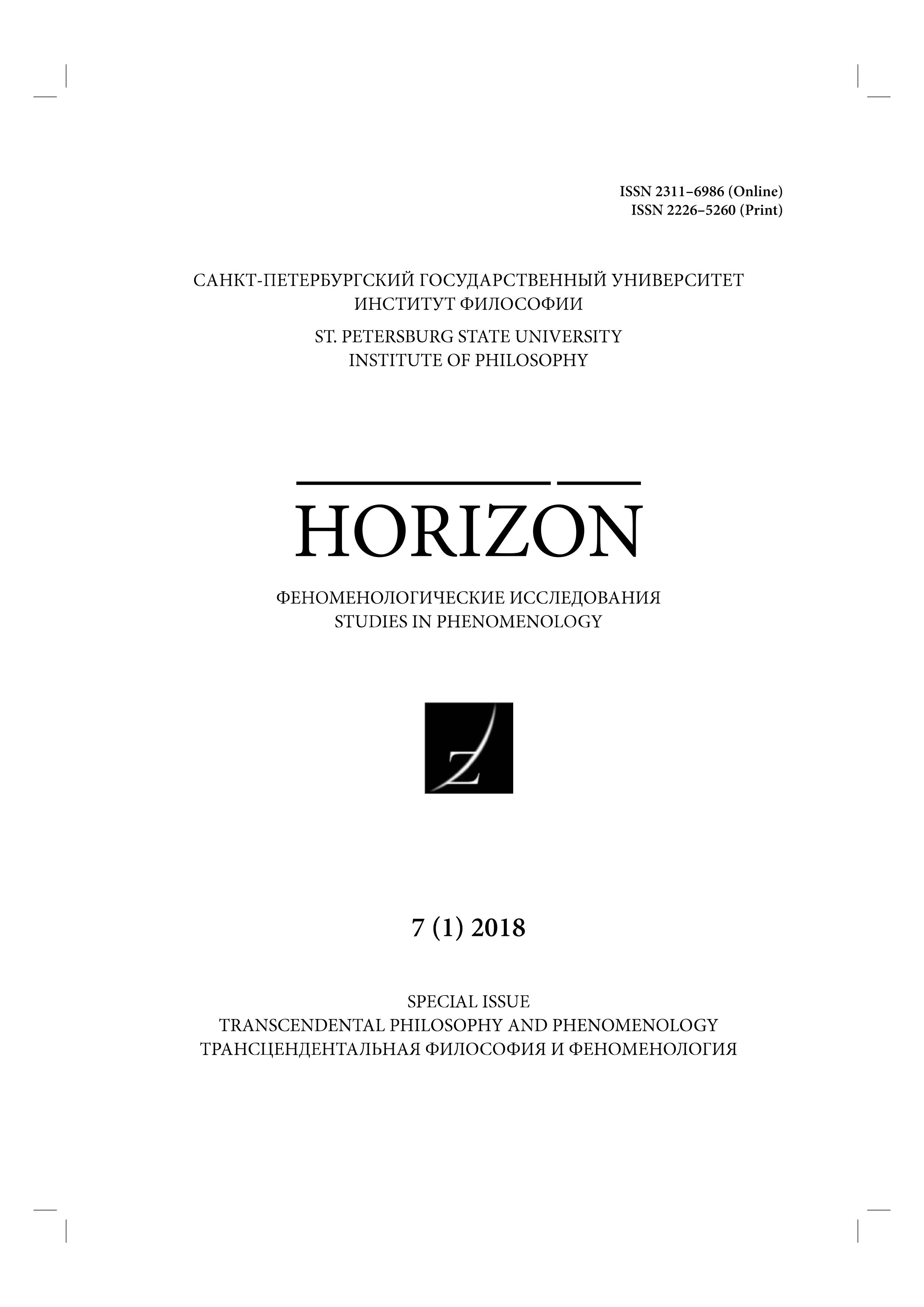BEARING ONE’S SHADOW: THE ARCHITECTURE OF THE TRANSCENDENTAL FROM KANT, THROUGH HUSSERL, TO MERLEAU-PONTY
BEARING ONE’S SHADOW: THE ARCHITECTURE OF THE TRANSCENDENTAL FROM KANT, THROUGH HUSSERL, TO MERLEAU-PONTY
Author(s): SEBASTJAN VÖRÖS, TIMOTEJ PROSENSubject(s): German Idealism, Phenomenology
Published by: Издательство Санкт-Петербургского государственного университета
Keywords: Kant; Husserl; Merleau-Ponty; transcendental philosophy; naturalized phenomenology; phenomenologized nature; epoché; phenomenological reduction
Summary/Abstract: Recent years have witnessed a revival of interest in transcendental philosophy, sparked by debates surrounding the question of the (im)possibility of naturalizing phenomenology. However, it is often the case that these debates fail to appreciate the alterations that the notion of “the transcendental” has undergone since Kant first introduced his system of transcendental idealism. The paper intends to critically examine some of these changes, arguing that Husserl’s “transcendental turn,” although significantly altering Kant’s original conception, remained faithful to the project of transcendentalism and wrought in its wake important resources for Merleau-Ponty’s subsequent elaborations. The central part of the paper takes us through three conceptions – from Kant’s “transcendentalism of faculties”, through Husserl’s “transcendentalism of pure consciousness,” to Merleau-Ponty’s “transcendentalism of the flesh” – arguing that they constitute a coherent transcendentalist “thought style.” In the final section, we claim that these progressive alterations in the meaning of the transcendental project can shed light on the debate about the (im)possibility of naturalizing phenomenology. We do this by providing a notion of the transcendental that makes room for the “truth of naturalism”, while simultaneously insisting on the necessity of a reverse (and supplementary) movement, namely that of phenomenalizing (“transcendentalizing”) nature.
Journal: Horizon. Феноменологические исследования
- Issue Year: 7/2018
- Issue No: 1
- Page Range: 160-185
- Page Count: 26
- Language: English

